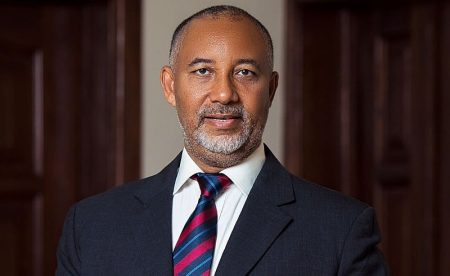The Nigeria Labour Congress (NLC) has vehemently denounced any attempt by the National Assembly to decentralize labour issues, particularly the determination of the minimum wage, by transferring them from the exclusive legislative list of the Federal Government to the concurrent list. This proposed shift would empower individual states to set their own minimum wages, a prospect that the NLC views as detrimental to the welfare of Nigerian workers and a contravention of international labour standards. The NLC President, Joe Ajaero, articulated the organization’s stance during a National Administrative Council meeting, characterizing the move as an “exercise in futility” that undermines the established national minimum wage structure. He cautioned against the potential for states to exploit this decentralization to suppress wages and compromise workers’ rights.
The NLC’s core argument rests on the principle that minimum wage determination is a national prerogative, consistent with International Labour Organisation (ILO) conventions. These conventions recognize member countries as singular entities, not sub-national units like states. Ajaero expressed concern that the National Assembly’s initiative is a calculated attempt to “bastardise” the existing national framework and shift other crucial labour responsibilities, such as the establishment of state industrial courts, to the states. He warned that such a move would not only violate ILO principles but also potentially lead to inconsistent and potentially exploitative wage practices across the country. The NLC leader stressed that the establishment of independent state industrial courts for handling wage disputes is a clear violation of ILO principles, emphasizing the need for a unified and consistent approach to labour regulations.
Ajaero underscored the NLC’s commitment to resisting any attempts to undermine the national minimum wage, pledging to mobilize workers in protest if the National Assembly proceeds with the proposed transfer to the concurrent list. He challenged the lawmakers to consider the implications of their actions for the workers they represent and urged them to uphold justice and protect the interests of their constituents. The NLC’s position is rooted in the belief that a unified national minimum wage provides a critical safety net for workers, ensuring a baseline standard of living and safeguarding against exploitative practices. Decentralizing this process, the NLC argues, would create a fragmented system susceptible to manipulation and potentially exacerbate existing economic inequalities across the country.
Elaborating further, Ajaero emphasized that the existing national minimum wage of N70,000 serves as a baseline, with many states already exceeding this amount. He stressed the importance of maintaining this national standard to protect workers across the federation, cautioning against the potential for states to independently set lower wages, effectively reducing the earning power and standard of living for many Nigerians. He clarified that the NLC was not aware of any states currently refusing to pay the newly approved minimum wage, suggesting that the existing system, while perhaps imperfect, functions adequately. This reinforces the NLC’s position that the proposed decentralization is not driven by necessity but rather by a potentially malicious intent to undermine workers’ rights and weaken their bargaining power.
Beyond the minimum wage debate, Ajaero also addressed the delayed implementation of local government autonomy. He advocated for seeking further clarification from the Supreme Court on its ruling on the matter to ensure its full and proper enforcement in accordance with constitutional provisions. This underscores the NLC’s commitment to strengthening democratic governance at all levels and ensuring that all tiers of government, including local governments, have the resources and autonomy to effectively serve their constituents. The call for Supreme Court intervention suggests a potential impasse in the implementation of local government autonomy and highlights the NLC’s determination to pursue all legal avenues to ensure its realization.
In summary, the NLC’s opposition to the proposed decentralization of labour issues stems from a deep-seated commitment to protecting workers’ rights and ensuring a fair and equitable labour market. They view a national minimum wage as a crucial safeguard against exploitation and a vital tool for promoting a decent standard of living for all Nigerian workers. The NLC’s willingness to mobilize and challenge the National Assembly’s initiative underscores the gravity of the situation and their unwavering resolve to defend workers’ interests against what they perceive as a potentially damaging attack on their fundamental rights. Their concomitant advocacy for local government autonomy further demonstrates their broader commitment to strengthening democratic institutions and ensuring equitable distribution of resources across all levels of government.














